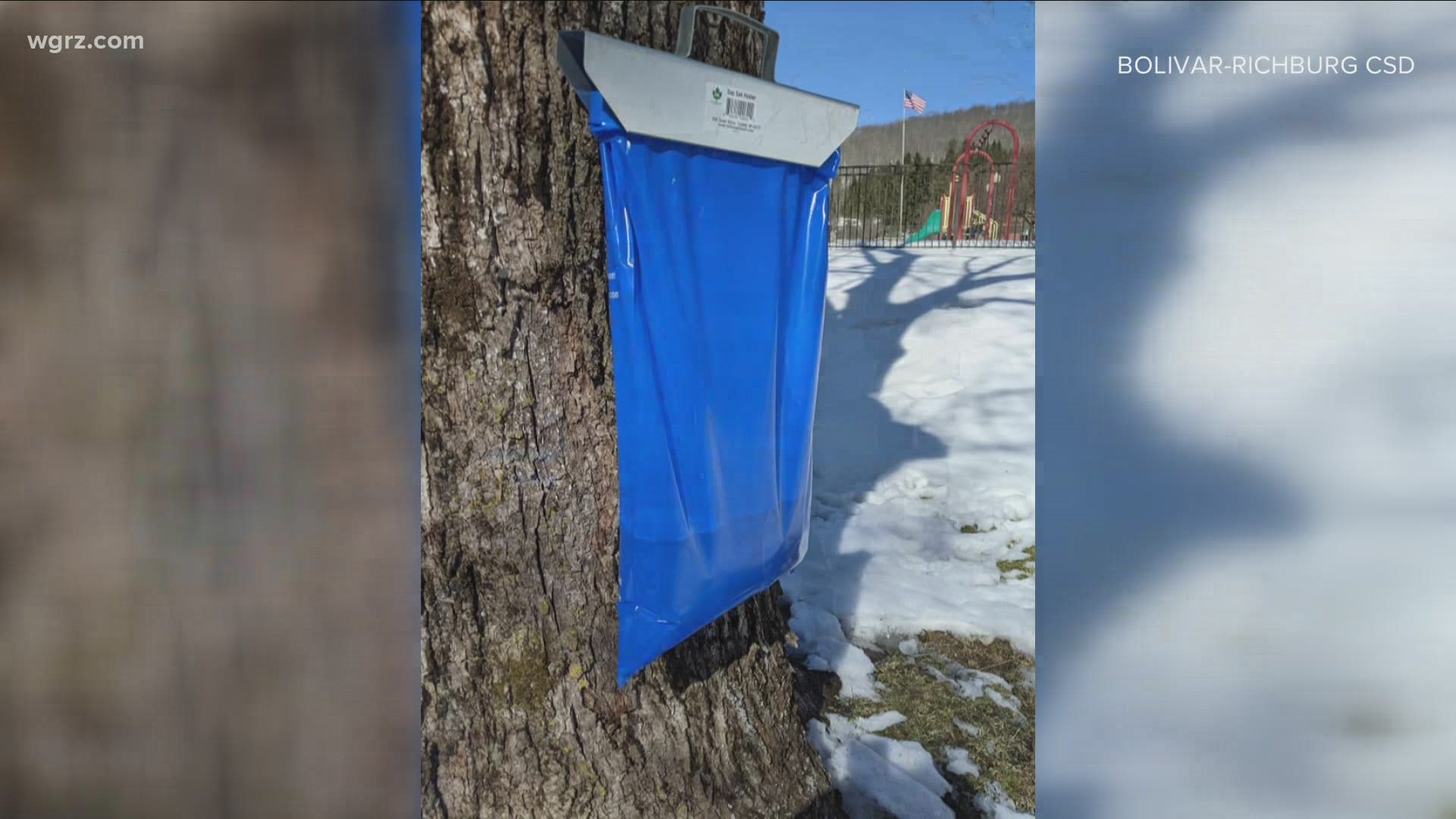BOLIVAR, N.Y. — A teacher in the Southern Tier is getting national recognition for her unique lessons in the classroom and the curriculum that gets students outside of a normal classroom setting.
Bolivar-Richburg teacher Patricia Eshelman was recognized by the National Agriculture in the Classroom Organization, the U.S. Department of Agriculture’s National Institute of Food and Agriculture, and Farm Credit.
The three groups partner each year to honor teachers in pre-kindergarten through 12th grade nationwide for the innovative ways they use agricultural concepts to teach various subjects — from reading and math to science and technology.
Eshelman was one of eight teachers across the country to win a 2021 National Excellence in Teaching about Agriculture Award.
They will be honored at the 2021 National Agriculture in the Classroom Conference “Fields of Dreams” June 28 through July 1 in Des Moines, Iowa.
Eshelman teaches her high school students about ecology and agricultural concepts with "Farmer Fridays," where she invites guest speakers to talk to her classes. She also has students build, plant, and maintain a garden, as part of the Wolverine Environmental Education Center.
"Recognition is very flattering and very nice, but that's definitely not why any of us do any of the work we do. I am so proud of what we have done here in terms of building this garden. I want it to be a point of pride for the entire community," said Eshelman.
Students can choose what they want to plant. During the summer, students are hired to care for the garden.
"They get into the working world. They get a lot of hands-on experience and leadership because they are here primarily by themselves. They have the responsibility of opening up buildings and talking to the public. If we sell something, they have to handle money, give change and be responsible for that aspect as well," said Eshelman.
Food is given or sold to the community, teachers, and even the school cafeteria.
The school has peach, pear, and apple trees that the students maintain. There are also maple trees, which students tap for maple syrup production.
Eshelman has taught biology for more than 20 years, but in 2017, she added the agriculture lessons to her classroom to fulfill her own passion but to also expand her students' horizons.
"I have been teaching these kids in this rural community for a long period of time, and I realized that I don't have any farm kids in my class. So here we are in this beautiful, rural part of New York state. I grew up on a sheep farm. I grew up with gardens. I grew up with preserving food, but these students don't have that experience or connection to the food that they are eating," said Eshelman. "It was a revelation to me that even though we are surrounded by forest and farm land and old barns, these students really did not have a solid foundation of education in either agriculture or ecology."
Eshelman wants her students to have a better understanding and appreciation of where their food comes from. She said that knowledge can lead to better, healthier habits — and for some, it may spark an interest that leads to a career connected to agriculture.
She knows that not everyone who lives in a rural community will have an interest in farming, and she knows that some might move away from the area. In either case, she wants them to work hard now and know that what they're learning now can carry into their future.
"I want students to come back in a few years and be proud of what they contributed here in their community. I think when you give anybody a chance to make a major difference in what they are doing, it makes it stay with them forever," said Eshelman.

